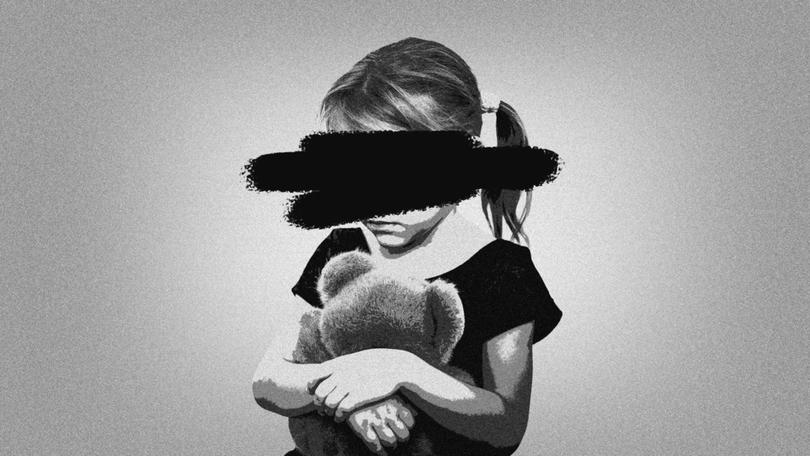Institutional child sexual abuse described as ‘medical procedure’, survivor tells federal inquiry

WARNING: CONFRONTING CONTENT
A survivor of institutional child sexual abuse has described her harrowing experience of “virginity testing”, as she called on the national redress scheme to better acknowledge the archaic practice and its lasting impact on victims.
Appearing before a joint parliamentary inquiry into the scheme on Friday, two women gave explicit accounts about how the program — set up in response to the damning Royal Commission into Institutional Responses to Child Sexual Abuse — had failed them.
Sign up to The Nightly's newsletters.
Get the first look at the digital newspaper, curated daily stories and breaking headlines delivered to your inbox.
By continuing you agree to our Terms and Privacy Policy.At the last hearing in April, the Department of Social Services revealed it had received more than 38,000 applications since the scheme began in 2018, and had paid out $1.31 billion in redress to 14,716 claimants.
On Friday, one woman known only as Lorraine, called on the scheme to acknowledge survivors of archaic “virginity testing” as sexual abuse survivors, after her redress claim was knocked back because her own experience at the age of 13 at a children’s home had been deemed a a “medical procedure”.
She gave a detailed account about how, upon arriving at Bidura, she had been made to disclose to a male stranger that she had been raped — to which he called her a “filthy little sl**” — before he penetrated her, first with his fingers and then with a sharp metal object.
She told parliamentarians she had been left covered in “so much blood”, and that she knew then — as she did now — that it was wrong.
“The sexual abuse that happened to me was at no time introduced to me as a medical procedure ... I did not give consent ... and my autonomy was completely taken away,” she said.
“I was treated violently and aggressively. And if these actions were perpetuated upon anyone else outside a children’s home, even by a medical professional, that would be committing a crime.
“It is unconscionable to me that this man could sexually abuse girls in this way, and the National Redress Scheme condones it ... This was not a medical procedure.”
She said more than anything, she wanted accountability, but also wanted to know that no other survivors would be treated the way she had been.
Leonie Sheedy from the Care Leavers Australasia Network said she couldn’t understand how women like Lorraine had been denied justice.
“I’m starting to hate my country, because it’s a cruel country ... The fact that this redress scheme is excluding some of these care leavers is absolutely shameful,” she told The Nightly.
“People who have had the most horrific childhoods are encouraged to come forward, and are at the mercy of an independent decision maker who doesn’t really understand, and doesn’t really care.”
Greens senator David Shoebridge, who is on the committee, said it was “nothing short of shameful” that the redress scheme had knocked back survivors who had been subjected to “virginal testing”.
“When this abuse happened, the children who suffered it knew it was wrong, and the institutions and perpetrators who inflicted it knew it was cruel,” he told The Nightly.
“The only decent response is for the scheme to change its procedures and clearly state that so-called virginity testing was never a valid medical procedure. It was always abuse.”
Another woman known as Jane, took aim at the Department of Social Service – who runs the scheme – for not only denying her comprehensive redress application on a bogus argument, but for their inappropriate behaviour she uncovered through Freedom of Information.
She said the scheme had “blown up her life” and said urgent reforms were needed to ensure independent decision-makers and bureaucrats were better trauma-informed.
Jane described how after being led to believe her claim would be approved, she was cold-called 15 months after making her application and told she was not eligible for redress. She said a “junior” public servant — who seemed to not know the full reasons themselves — had told her it was because she had been voluntarily surrendered to care, and not court-ordered.
She was later informed she had time to submit more information to justify why she should be granted redress, but five months later had received a letter that said she was ineligible for redress, despite acknowledging the serious abuse she had suffered.
But given no reasoning, Jane was forced to apply through Freedom of Information for documents related to her case. While much of the material was withheld from her, she discovered that departmental staff had been communicating with each other that her claim was “always going to fail”, and had described her as having a “menacing edge”.
She also discovered the phone call she’d received out of the blue had been recorded without her consent. She described her experience with the scheme as “difficult” and “traumatic”, and the final decision letter as “patronising and awful”.
Jane said she had eventually received acknowledgement from the then-department secretary that she had been “let down”, and was provided the decision and statement of reasons, but was not granted access to material from the institution despite it directly relating to her.
But she said that if she could do her time over, she would never have commenced the process. She added she was now going down a civil route.
Senator Shoebridge said Jane’s case had highlighted further issues with the scheme.
“The scheme is meant to be trauma informed, but we have heard case after case where survivors are cold called and told their case has been rejected. This is often on technical grounds and is deeply re-traumatising,” he said.
Committee chair, Labor Senator Catryna Bilyk, said the department’s behaviour had been “inappropriate” and would be looked into.
“If this had happened in my office, people would be sacked on the spot,” she told Jane.
Social Services Minister Amanda Rishworth was contacted for comment.
The committee is expected to report back to parliament in the coming months.

